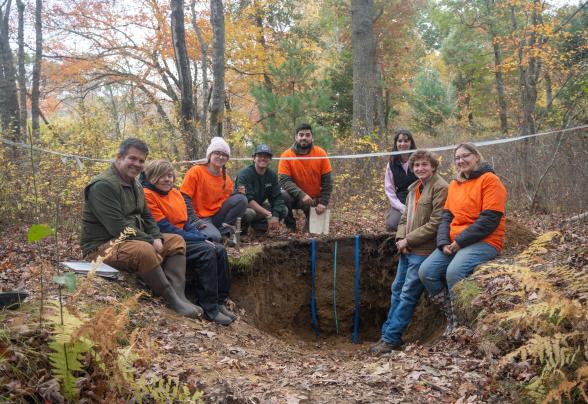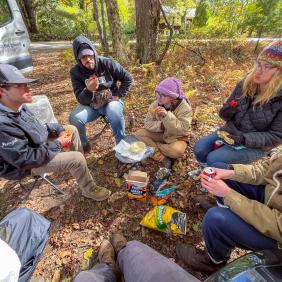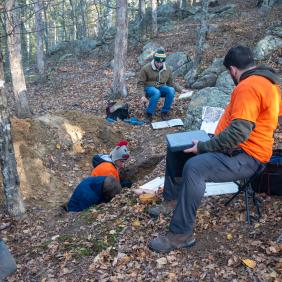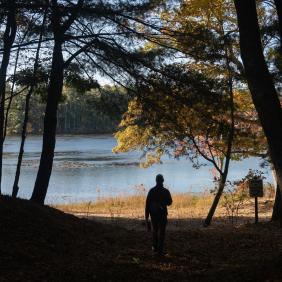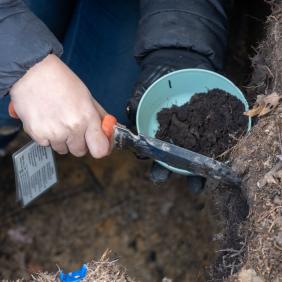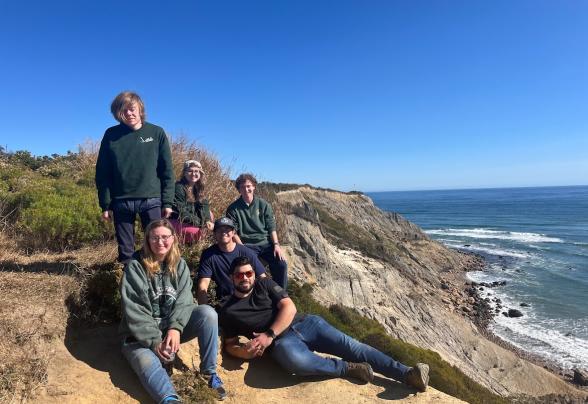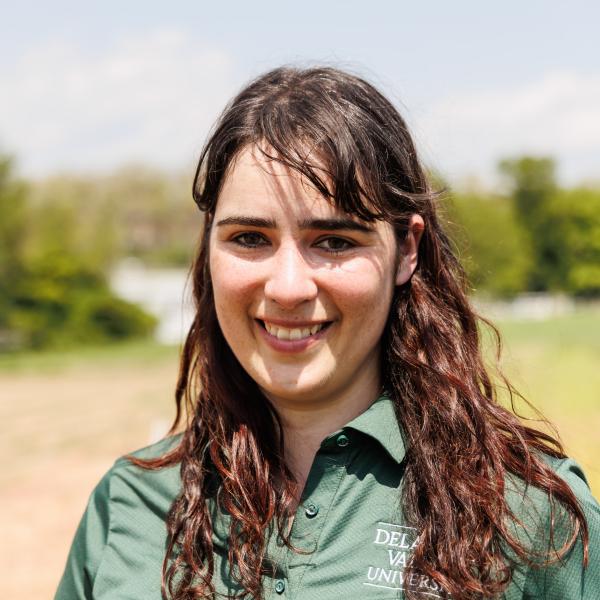
Assistant Professor, Soil and Environmental Science
What brings you the most satisfaction in your job?
Definitely working with the students. It’s incredibly rewarding to see them start to pick up phrases or things I’m saying in class, and actively using them outside of class. For example, we've exhibited at a couple local arts festivals and it's really fun to see our students teaching other people in the community, using phrases and concepts we’ve covered in class. It’s those moments when I realize, “Wow, they learned!”
How do you harness the pillar of experiential learning in your everyday teaching?
I was trained as a field scientist and my background is field soil science. Luckily, at DelVal, we have farms and land areas within walking distance, so every week we go out and look at soil in the field. We actually have about 15 soil pits between the main campus and our nearby farms, so we go out and get in the pits together. It’s a really good way to learn about how soil changes with depth. Then we apply that with other topics we’re covering, like designing sewage systems, soil chemistry and other important concepts. It’s experiential learning at its finest.
What are the characteristics of a successful student at DelVal?
The biggest characteristic for success for me is the students who show up and participate and aren’t afraid of getting involved. Especially in soils – you have to touch the soil so you can’t be afraid to get your hands dirty and go jump in a pit of mud. Our students need to have the ability to learn new things. As a hands-on University and in this industry, we’re using a lot of tools and devices that students have probably never used before and here they get the chance to learn.
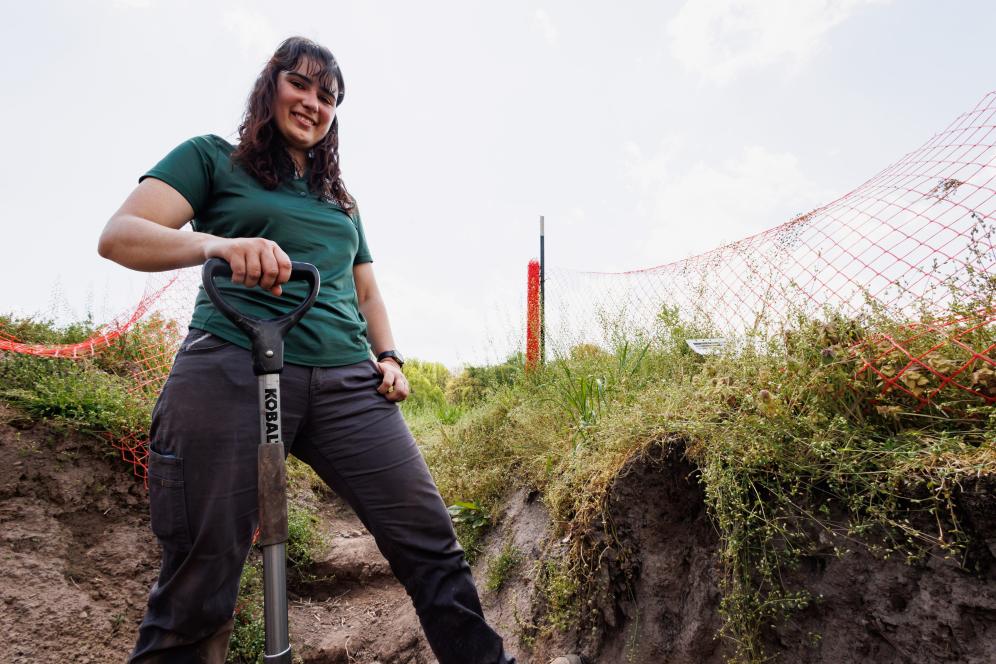
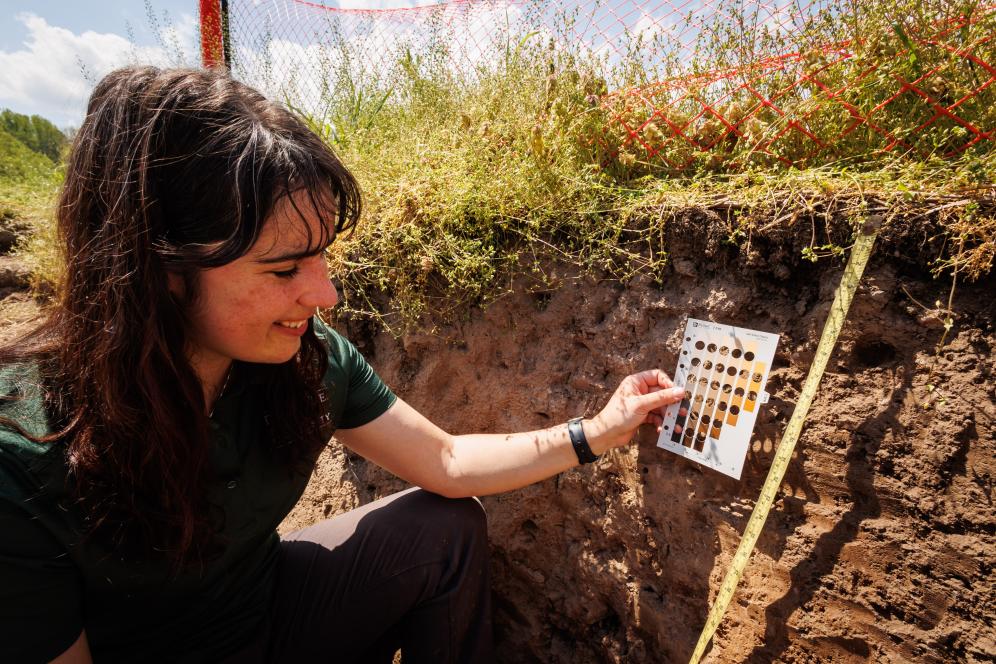
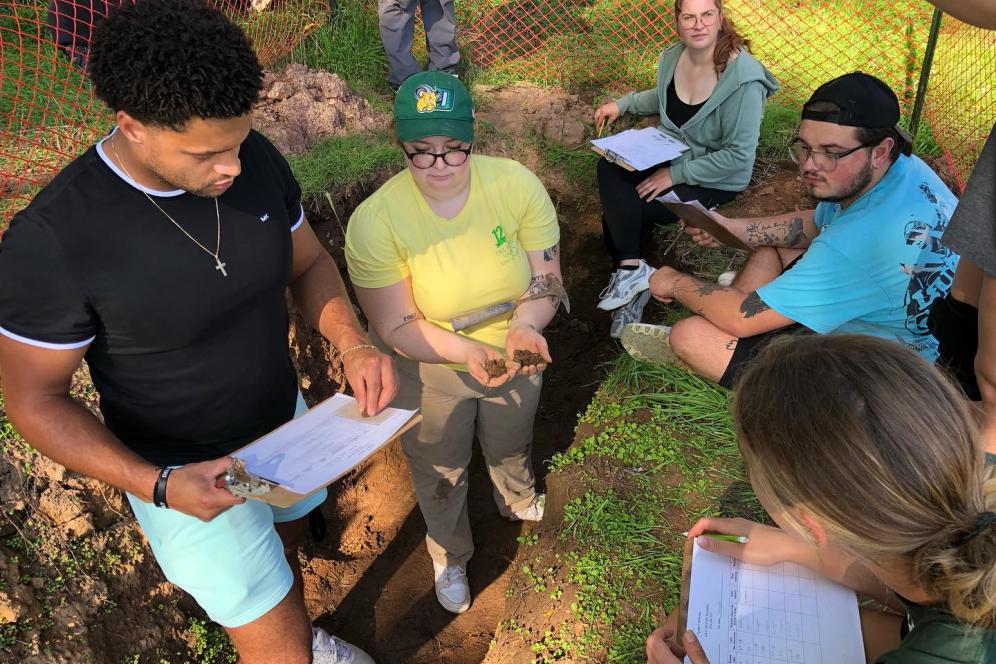
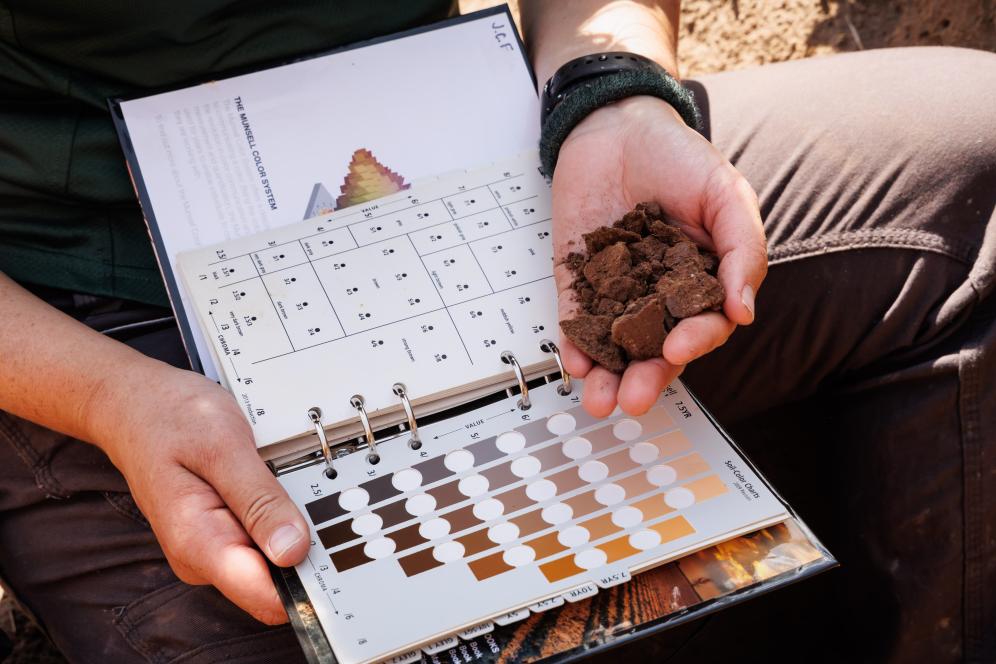
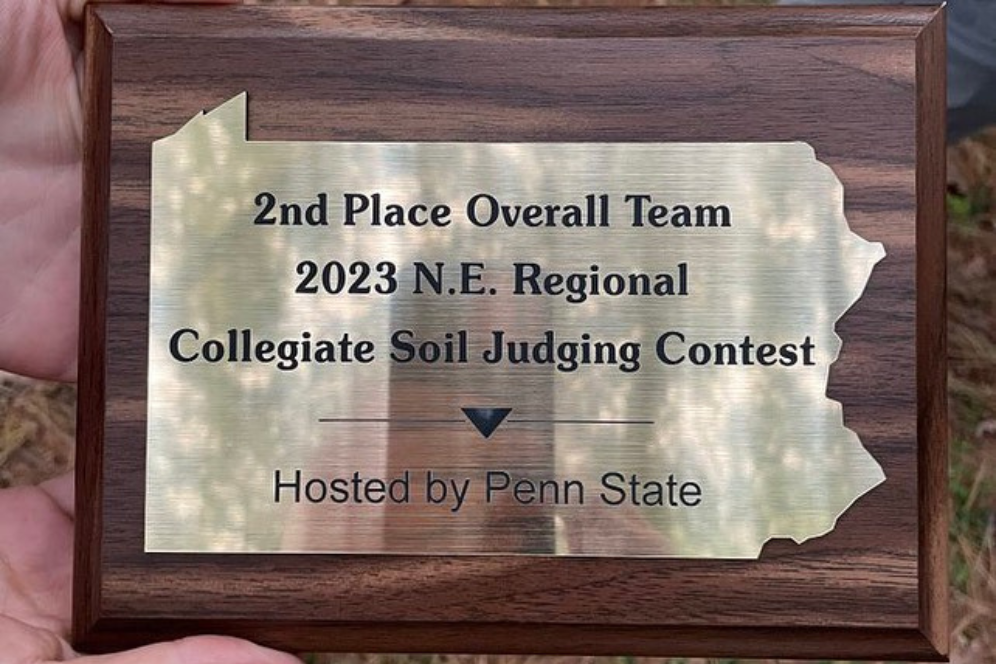
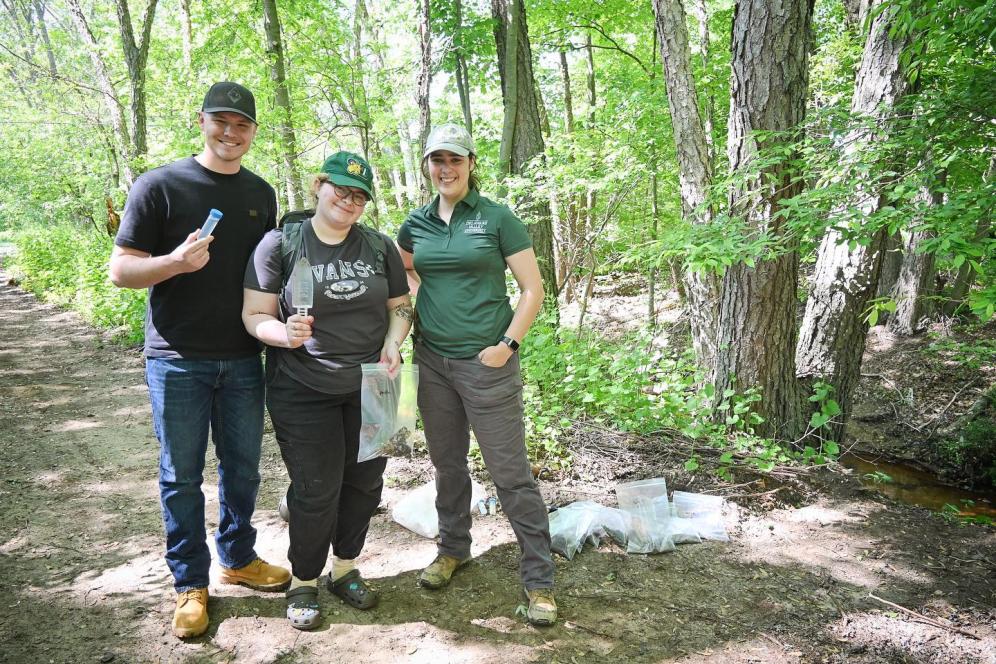
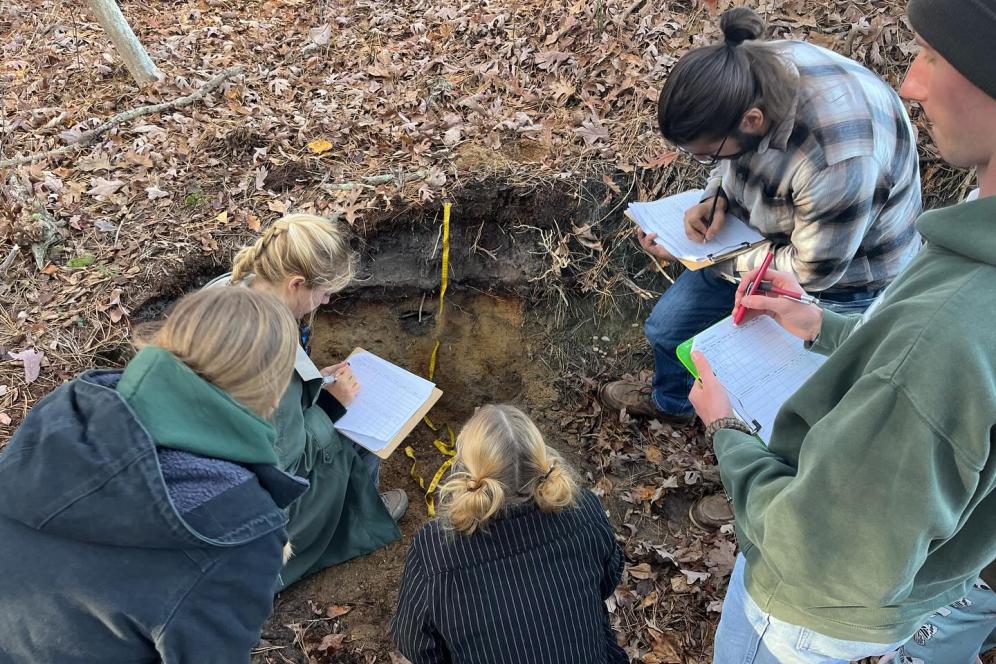
How would you describe DelVal and the DelVal student?
It's a small University, but in a really good way. Very focused on experiential learning and having this small professor to student ratio allows us to do these fun field trips and interactive and experiential things. The students here I've been really impressed with. They all show up to class, they show up to class early too, something I haven't really experienced, and everyone knows everyone else which is really cool. There's definitely a culture of really wanting to experience things and learn new skills especially in environmental science where we're learning field skills. And they really, really want that.
Do you have any student success stories that stand out to you?
I'm very proud of my soil judging team. We had eight students compete in the regional contest and we came in second in a really competitive region and that qualified us for the national contest. I’m also really proud to see them receive different awards and get into the graduate programs they wanted.
Are there any specific activities or initiatives that you prioritize while mentoring students?
I definitely emphasize honing the field skills. We do things like texturing which is taking a bit of soil in your hand and feeling it to try and measure the ratio of sand, salt and clay. It’s very hard to do but can take you a long way in this industry. Also, if you want to be a professional soils scientist you need to pass the professional soil science exam so we tailor our curriculum to prepare our students for that and it’s something we talk about often. It’s not required for all jobs but it’s often strongly encouraged.
If you were to have a YouTube channel or a TikTok Channel and you're an influencer, what would your channel be about, or would the content be? It doesn't have to relate to your profession, but maybe it does.
Okay, let’s be real, it’d probably be about my cat. His name is Pawpaw, like the pawpaw tree. He’s a gray tabby and he’s very fun and unique.
About Dr. Fiola
Dr. Fiola earned a B.S. in Environmental Science & Technology and a B.S. in Plant Sciences from University of Maryland, and a Ph.D. in Crop and Soil Environmental Sciences from Virginia Tech.
DelVal's Soil Judging Team Travels to Rhode Island and Qualifies for National Soil Judging Competition
